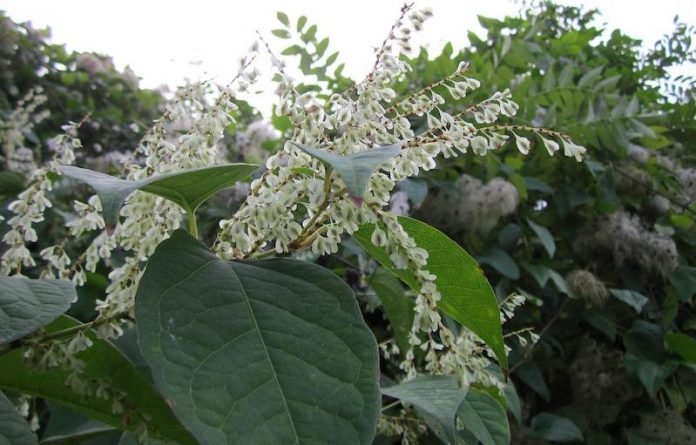
Scientists from the University of Reading found that bacon could be back on the menu of health-conscious diners thanks to unlikely salvation: Japanese knotweed.
They found the fast-growing plant contains a chemical that could take the place of the nitrite preservative in cured meats such as bacon and sausages.
The research is published in Molecular Nutrition and Food Research and was conducted by Gunter Kuhnle et al.
Diets high in nitrite have been linked to a higher risk of colorectal cancers—leading scientists, including at the University of Reading, to look for alternatives.
In the study, the team developed processed red meat that includes added natural substitutes which reduce the carcinogenic compound nitrite added to preserve meats.
The range of sausages and hams had a mixture of plants and fruits added to them which included rosemary, green tea, and resveratrol—an extract taken from Japanese Knotweed.
As well as developing versions of cooked and dry cured red meats which replaced nitrite with these natural alternatives, the team also tested whether those substitutes would have an effect alongside normal nitrate levels found in processed red meats.
They found that tell-tale signs of nitrite content in participants’ feces were much lower from both specially formulated meats, and levels were like those who were fed on minimally processed white meat.
The team says the ongoing worries about highly processed red meat have often focused on the role of nitrite, and its links with cancer.
The current project tackled the issue by creating processed red meat products that replace additives with plant-based alternatives.
The latest findings show that using natural additives in processed red meat reduces the creation of compounds in the body that are linked to cancer.
Surprisingly, the natural additives seemed to have some protective effects even when the red meat still contained nitrite.
This suggests that natural additives could be used to reduce some of the potentially harmful effects of nitrite, even in foods where it is not possible to take out nitrite preservatives altogether.
A major consideration for the team was how the nitrate content in drinking water can significantly affect the formation of nitrite, which is produced in the body, as found in previous research.
If you care about cancer, please read studies about benefits of garlic for fighting cancer and the common cold, and this berry can help prevent diabetes, obesity, cancer.
For more information about cancer, please see recent studies about nutrient essential for preventing cancer, boosting immune system, and results show this vegetable oil linked to spread of cancer.
Copyright © 2022 Knowridge Science Report. All rights reserved.



